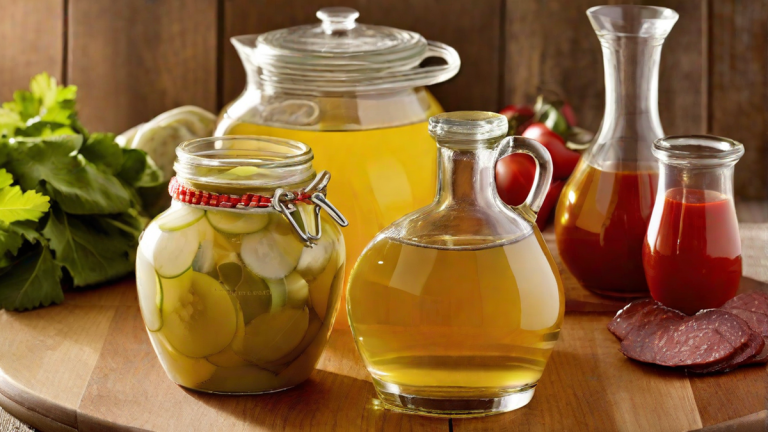I absolutely adore incorporating white wine vinegar into my recipes. It serves as an essential and versatile component in my kitchen repertoire. Aside from adding a lively and sharp flavor to meals, it possesses a wide array of uses outside the cooking sphere. In this article, we’ll explore the various applications of white wine vinegar and share my own tips and observations.
The Basics of White Wine Vinegar
White wine vinegar is made from the fermentation of white wine into acetic acid. It has a light, pale yellow color and a pleasant, slightly acidic taste. The acidity of white wine vinegar ranges from 5% to 7%, which makes it a perfect ingredient for dressings, marinades, and sauces.
Culinary Uses
White wine vinegar is a staple in many recipes, adding a zing to a variety of dishes. Here are a few ways I use it in my cooking:
- Dressings and Marinades: One of my favorite uses of white wine vinegar is in homemade dressings and marinades. Its acidity helps to balance out flavors and adds a tangy kick. I love using it in vinaigrettes for salads or as a marinade for chicken or fish.
- Preserving and Pickling: White wine vinegar is a vital ingredient in preserving fruits and vegetables. Whether I’m making pickled cucumbers or preserving seasonal fruits, white wine vinegar is key to achieving that perfect balance of acidity and flavor.
- De-glazing Pans: After searing meat or vegetables, I often deglaze the pan with a splash of white wine vinegar. It helps to lift all those delicious browned bits off the bottom of the pan, adding depth and richness to the sauce.
- Cleaning and Sanitizing: White wine vinegar is not only useful in the kitchen but also around the house. I use it as a natural cleaning solution for windows, countertops, and even coffee makers. It’s non-toxic and leaves a refreshing scent behind.
Health Benefits
In addition to its culinary uses, white wine vinegar offers several health benefits:
- Improved Digestion: The acetic acid in white wine vinegar can aid in digestion by stimulating the production of digestive enzymes.
- Weight Management: Incorporating white wine vinegar into your diet may help with weight management. It has been shown to increase feelings of fullness and reduce calorie intake.
- Blood Sugar Control: White wine vinegar has been found to help regulate blood sugar levels, making it beneficial for individuals with diabetes or insulin resistance.
Conclusion
White wine vinegar is a versatile ingredient that adds a unique flavor and acidity to dishes, dressings, and marinades. Its uses extend beyond the kitchen, making it a valuable resource for cleaning and even providing health benefits. Whether you’re an avid cook or looking for ways to incorporate natural remedies into your lifestyle, white wine vinegar is definitely worth keeping in your pantry. So grab a bottle and start experimenting with this fantastic ingredient!




